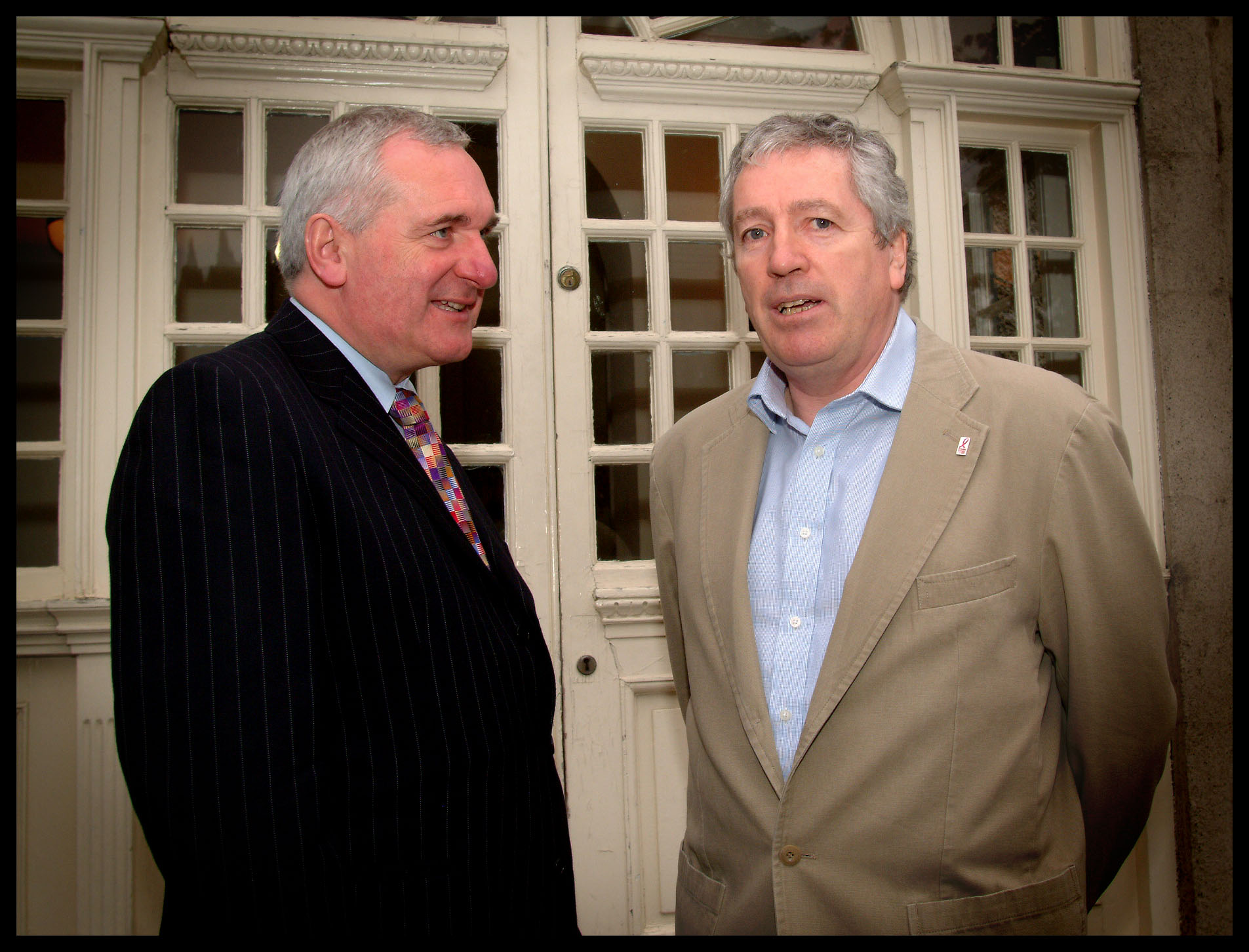Galvin, Brian (2005) Call for renewed commitment to local structures. Drugnet Ireland, Issue 16, Winter 2005, pp. 2-3.
| Preview | Title | Contact |
|---|---|---|
|
PDF (Drugnet Ireland, issue 16)
- Published Version
283kB |

A major conference organised by the Local Drugs Task Force Chairs and Co-ordinators Network has highlighted the continuing difficulties faced by local groups in dealing with the drugs problem in their own communities and the need for greater support from Government if this effort is to be sustained. The conference was held in the Royal Hospital Kilmainham on 3 October 2005 and was attended by over 400 delegates, including members of local drugs task forces (LDTFs), the voluntary and community sector and others active in the area.
An Taoiseach Mr Ahern TD, who opened the conference, and a number of senior civil servants heard several speakers express concern that support from state agencies for local efforts to deal with the drug problem had waned in recent years. Mr David Connolly, Chair of the LDTF Network, told the conference that ‘it is vital that the Government formally and publicly re-state their support for the lead role of the local and regional drug task forces, and in the context of the National Drugs Strategy commit the relevant departments and agencies to maintain and increase their involvement in these local structures and their response to the drug crisis’.
A number of people from the voluntary sector who have been active in the drugs area for several years addressed the conference. Ms Anna Quigley, co-ordinator of CityWide Drugs Crisis Campaign, said that, while community-led partnerships dominated in the early years of the LDTFs, increasing bureaucracy in recent years has caused decision making to move away from local areas. She said that the level of involvement from statutory agencies varied considerably and was often determined by the commitment of the individual statutory representatives on the LDTFs. She also said that it was vital that statutory representatives be given the support and direction to make a real contribution to this work. Mr Hugh Greaves of Ballymun LDTF referred to highly favourable evaluations and reviews of the LDTFs and the recent tributes paid to them in the mid-term review of the National Drugs Strategy. He said that the LDTFs had made considerable progress over the last eight years but there was a need to strengthen the partnership approach which had led to this progress. Mr Tony Geoghan, director of Merchants Quay Ireland, Ms Emily Reaper of UISCE, the drugs users’ forum, and Sadie Grace of the Family Support Network also addressed the conference. Mr Dermot McCarthy, Secretary General at the Department of the Taoiseach, also emphasised the need to support statutory representatives on the LDFTs, some of whom may feel removed from the centre of policy making. Mainstreaming of drugs projects was a very necessary part of developing accountability, equity, transparency and efficiency. He assured delegates that the Government was not complacent on the drugs issue.
The second part of the conference comprised a number of parallel workshops, each dealing an aspect of the partnership model on which the work of the LDTFs is based. Among the proposals agreed by the various workshops was the establishment of the Family Support Network as an autonomous organisation with a representative on the National Drugs Strategy Team (NDST). The need for LDTFs to draw up multi-annual plans, supported by ring-fenced budgets, was identified during the Operational Guidelines workshop. This workshop also proposed that the LDTFs be renamed Local Drugs Strategy Teams, and pointed to the need for clarification from the NDST on what mainstreaming of LDTF projects means. Another workshop emphasised the importance of an early decision on benchmarking of salaries of LDTF staff. It also noted the need to employ more administrative staff and to protect this recruitment from staff ceilings as the HSE is now responsible for funding most projects. The Policing workshop proposed that the NDST should direct all LDTFs to develop community policing fora in their areas, with the focus on drugs and drug crime. This workshop emphasised the importance of Garda acknowledgement of the role of community policing and the need for specialised training which would allow community gardaí to work effectively in LDTF areas. The workshop on the Mid-term Review of the National Drugs Strategy called for a more co-ordinated approach to developing drug and alcohol policy.
The proposals emerging from the workshops were reported back to the conference. Minister of State with responsibility for the drugs strategy, Mr Noel Ahern TD, responded to these proposals and assured the delegates that the Government was fully committed to achieving the objectives outlined in the strategy.
In a closing statement, the conference called on the Government and state agencies to re-engage fully with the LDTFs in their efforts to respond to the drugs crisis. Priority must be given to implementing the specific dedicated actions outlined in the National Drugs Strategy mid-term review. It is essential that the Government responds urgently to the emerging drugs problems throughout the country and that additional LDTFs are established. The conference also proposed that each LDTF produce a new strategic action plan for the remaining period of the National Drugs Strategy. This is necessary to maintain a strategic and coordinated response at a local community level.
Repository Staff Only: item control page